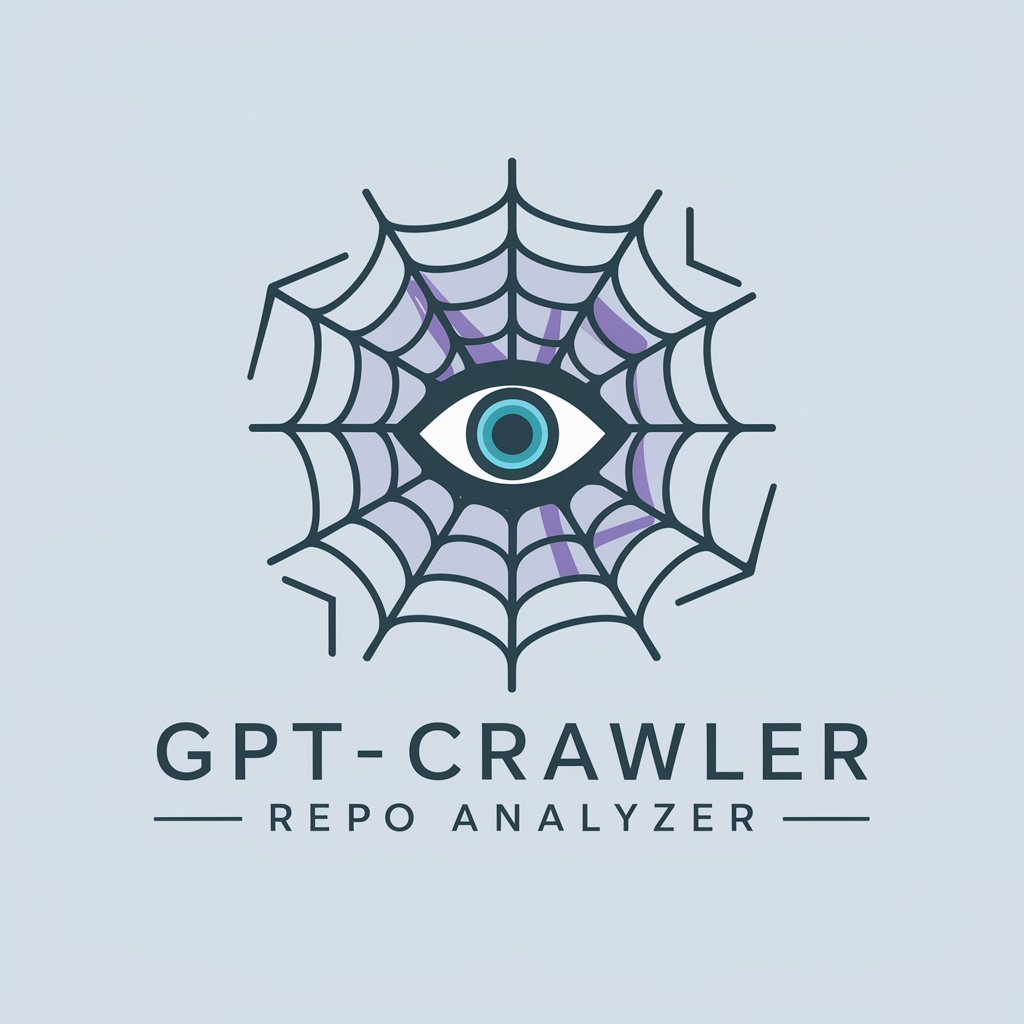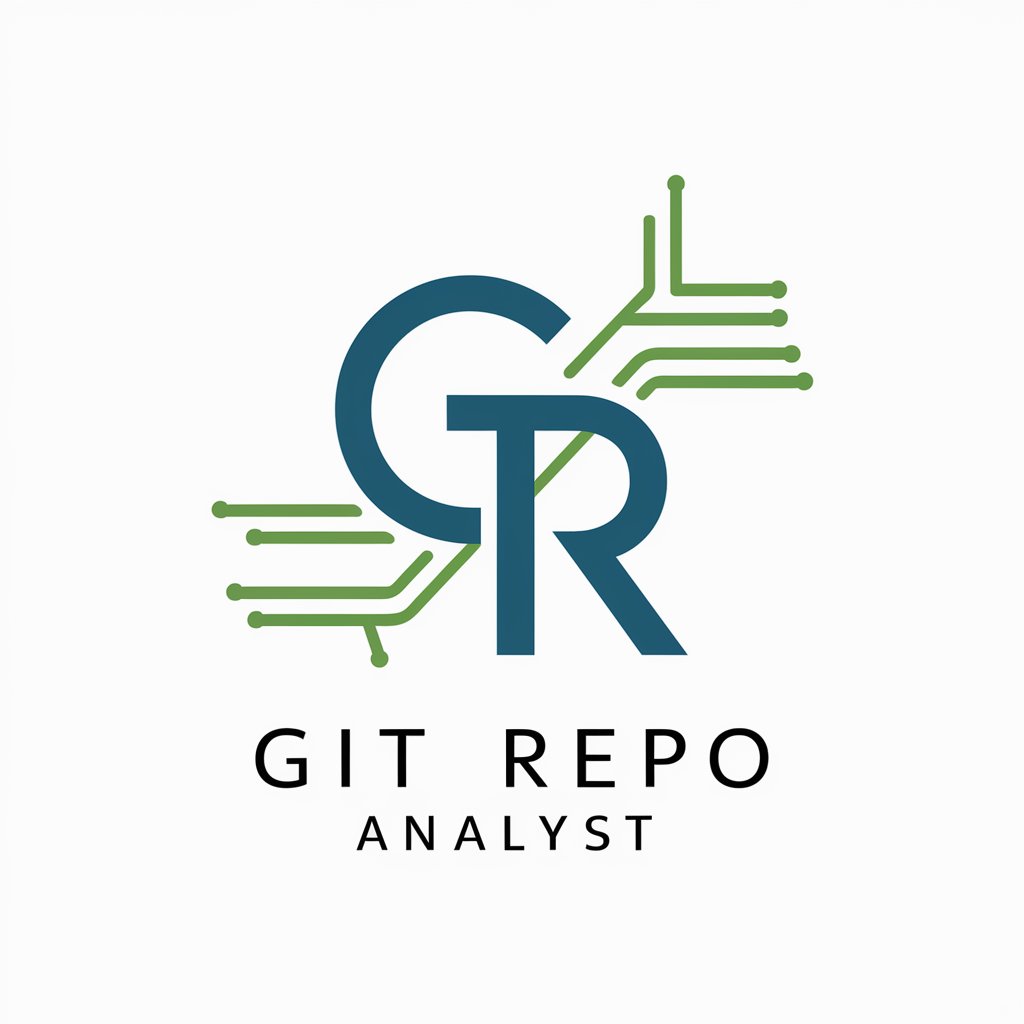
GPT-crawler repo Analyzer - In-depth Code Analysis

Hello! Ready to optimize your code?
Elevating Code Quality with AI
Analyze this code snippet for potential optimizations:
Can you identify any errors in this script?
What improvements can be made to this function?
Evaluate the performance of this code block:
Get Embed Code
Understanding GPT-crawler repo Analyzer
GPT-crawler repo Analyzer is designed as a specialized tool tailored for analyzing GitHub projects through JSON files, where 'html' represents code and 'url' indicates file titles. Its core purpose is to elevate the quality of code by offering comprehensive static analysis. This includes identifying errors, suggesting performance upgrades, and providing a complete code review. By interpreting code across various programming languages, it aims to guide developers towards best practices and optimization. For instance, if a developer submits a project file with JavaScript code, GPT-crawler repo Analyzer might highlight inefficient loops, suggest modern syntax like 'let' and 'const' over 'var', or point out potential security vulnerabilities in code handling user input. Powered by ChatGPT-4o。

Core Functions of GPT-crawler repo Analyzer
Error Detection
Example
Identifying syntax errors or deprecated functions in a Python script.
Scenario
A developer uploads a Python project file. The analyzer reviews the code, detects use of a deprecated 'time.clock()' function, and suggests 'time.perf_counter()' as a modern alternative.
Performance Improvement Suggestions
Example
Recommending the use of efficient data structures or algorithms.
Scenario
In a Java project file, the analyzer notices an ArrayList being used inside a loop for frequent insertions/deletions. It suggests using LinkedList instead to improve performance.
Code Review and Best Practices
Example
Offering advice on code readability and maintainability.
Scenario
Upon analyzing a JavaScript file, the tool advises on splitting a large, complex function into smaller, more manageable functions and using more descriptive variable names.
Target User Groups for GPT-crawler repo Analyzer
Software Developers
Individuals or teams developing software who aim to improve their code's quality, efficiency, and security. They benefit from detailed code analysis, error detection, and optimization suggestions.
Educators and Students
Educational professionals teaching programming and their students can use the analyzer to understand code quality principles better and learn how to write more efficient and maintainable code.
Project Managers and Code Reviewers
Project leads and reviewers looking to enforce coding standards and best practices across their teams can leverage the analyzer for consistent, automated code assessments.

How to Use GPT-crawler repo Analyzer
Start with a Free Trial
Begin by accessing yeschat.ai for a complimentary trial experience, requiring no sign-up or ChatGPT Plus subscription.
Upload Your Code Repository
Provide the GPT-crawler repo Analyzer with your code repository in JSON format for analysis. Ensure the JSON file accurately represents the structure and contents of your GitHub repository.
Specify Analysis Criteria
Detail your analysis needs, such as error detection, performance improvements, or coding best practices, to tailor the review process.
Review the Analysis
Examine the comprehensive report provided by the Analyzer, which includes insights on code quality, potential optimizations, and suggested improvements.
Implement Recommendations
Apply the actionable feedback from the Analyzer to enhance your codebase, ensuring to iterate on the review process for continuous improvement.
Try other advanced and practical GPTs
Futures GPT
Empowering Your Trades with AI

Anime Chef
Bringing anime cuisine to your kitchen.

PósDireitoBR
Empowering Legal Research with AI-Powered Insights

infobroker.de Knowledgebase
Empower decisions with AI-driven insights

PósCiênciaPolíticaBR
Empowering Political Science Research with AI

Startup Mentor GPT
Empowering Entrepreneurs with AI-Driven Insights

Fluent Python
Master Python with AI-powered guidance.

Ông vua bán hàng
Empowering Your Business Decisions with AI

Ephinea Tactician
Optimize Your PSO:BB Experience

Branding GPT
Empower Your Brand with AI

PósAstronomiaBR
Unlocking Astronomy Insights with AI

Rama-GPT
Streamline backend development with AI.

GPT-crawler repo Analyzer Q&A
What programming languages does GPT-crawler repo Analyzer support?
The GPT-crawler repo Analyzer is proficient in analyzing repositories across a wide range of programming languages, including but not limited to Python, JavaScript, Java, C++, and Ruby, thanks to its advanced understanding of code syntax and semantics.
Can it identify security vulnerabilities within a codebase?
Yes, the Analyzer is designed to identify potential security vulnerabilities by analyzing the code patterns and known vulnerability signatures within the codebase, helping developers to preemptively address security issues.
Does the Analyzer offer performance optimization suggestions?
Absolutely. The tool provides targeted suggestions for performance enhancements by identifying inefficient code patterns and suggesting optimized alternatives, thereby improving the overall efficiency of your application.
How does the Analyzer handle large repositories?
GPT-crawler repo Analyzer efficiently processes large repositories by analyzing the code structure and contents in segments, ensuring comprehensive coverage without compromising on the depth or accuracy of the analysis.
Is there support for continuous integration?
While the Analyzer itself is a standalone tool designed for manual code submission, its insights can be integrated into continuous integration workflows by developers to ensure ongoing code quality and adherence to best practices.





